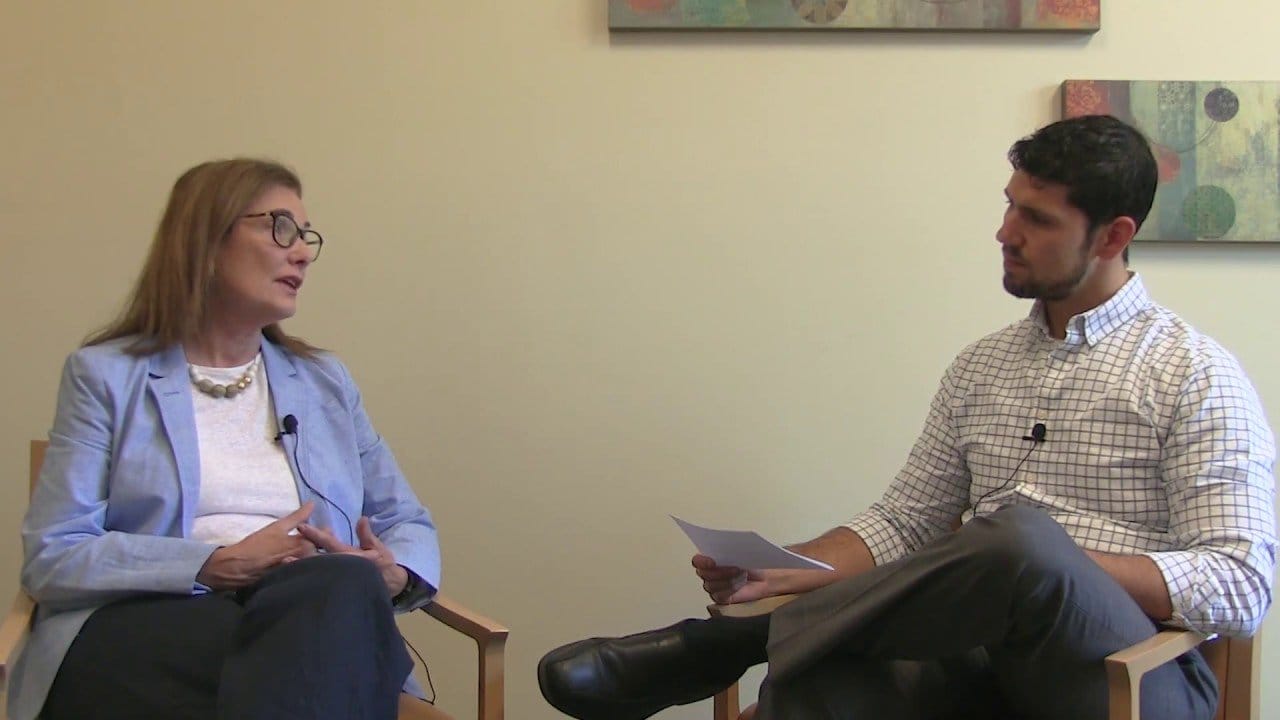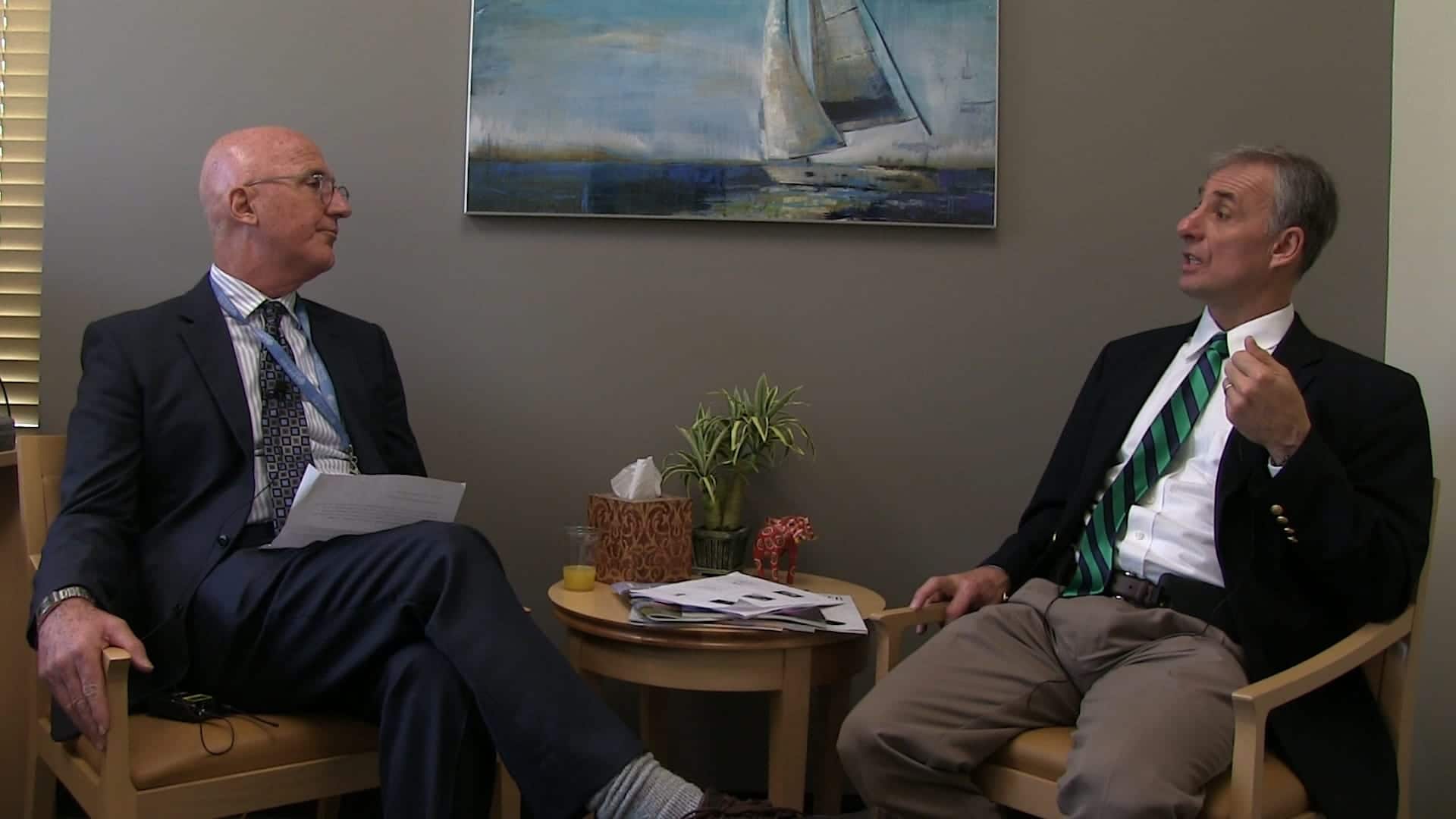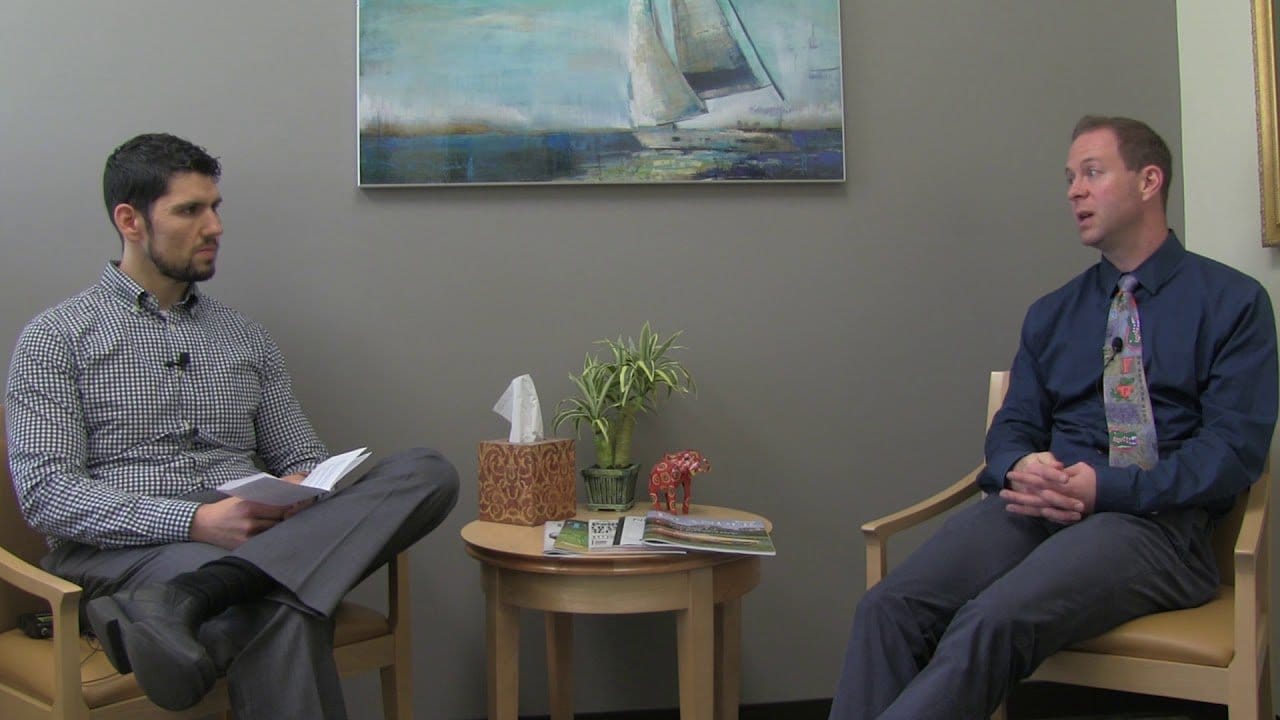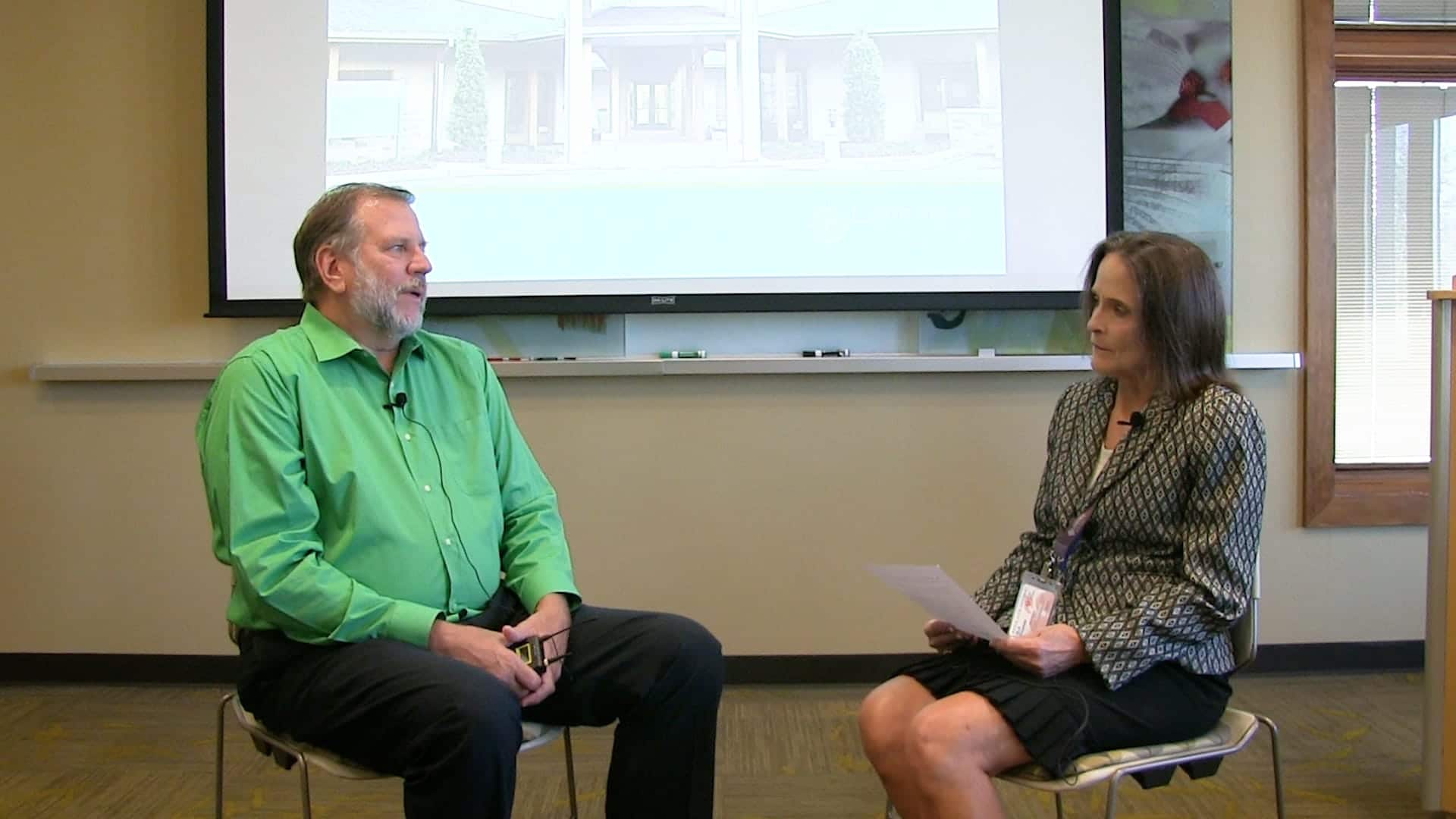Dr.Hemphill: Good afternoon, I’m Dr. Phillip Hemphill, chief clinical officer of Lakeview Health. Today, from Orlando, Florida, we have National Accounts Manager Director of Cornerstone of Recovery, Jeff Mangrum, joining us. Thank you, Jeff. Jeff Mangrum: Thank you. Thank you to the other Dr. Phil. Dr.Hemphill: Appreciate that. I really enjoyed our talk- Jeff Mangrum: You’re better looking. Dr.Hemphill: I really enjoyed our time last night at dinner. That was- Jeff Mangrum: I did, too. Was great conversation and so many different topics but all focused in on helping other people and trying to find answers to very difficult questions. So, takes some enjoyment out of that. Dr.Hemphill: Yeah. It was very communal. Jeff Mangrum: Yeah. Dr.Hemphill: To hear your talk today and your focus today on Joseph Campbell’s work. You spent quite a bit of time in your life sort of integrating this into your beliefs, your value system, your own behavior, your thought patterns. It’s very powerful to hear how you’ve done this. Jeff Mangrum: Thank you. Dr.Hemphill: One of the things I was interested in is you’ve applied this model to many different organizations around the world, actually. I was wondering about this journey of the hero in healthcare. How did you get to applying in all these different industries, but also how has it resonated with you that it’s come out in healthcare? Jeff Mangrum: Well, one of the things that I mentioned in the presentation is that a lot of this stuff that Campbell talks about is almost instinctual for us. I think that healthcare has been kind of blindly stumbling towards some of the heroic journey milestones without even realizing it. Recently, care advocates came out, right? These were for people that never accessed a healthcare system before and suddenly, they’re in the thick of it. They don’t know what this treatment is or that treatment is. Well, hospitals and healthcare systems grew these advocates up to sort of mentor these families and these individuals to help guide them through the process. Of course, insurance companies want that too because they can guide them through some very specific doorways that insurance companies would like them. So, it really depends on who is advocating. Who is the advocate advocating for? That’s very important. But again, there’s a situation where there was a need sought that we needed a guide, a mentor providing supernatural aid and skills and tools to navigate through this system but nobody ever said, “Well, this is Campbell. Second step in the heroic journey. Let’s make some supernatural aid for these folks.” They just instinctually drew toward it. Dr.Hemphill: Sure. Jeff Mangrum: We see that over and over again in treatment facilities now, often you’ve got care navigators that kind of help the family, guide them through the process. We need guides. We need coaches. We need mentors to step forward to fulfill that role and I think that that’s something that has been lacking in healthcare until recently. Before, it was you were left at your own devices and this treatment or that treatment. I’ll share one quick story with you. My mother just had lung cancer surgery. She went to one healthcare system. They wanted to inject her with a pellet and take her through chemotherapy where it would be focused on that pellet, right? So that was the whole thing. She went and got a second opinion and that doctor said, “Why are they gonna do that? I’ll just put an incision between your ribs, I’ll snip that piece out and that’ll be it. If the margins are clean, you’re fine.” Well, she went and had it snipped out and she’s been fine. She would have gone through, what? Six, eight months, a year of chemotherapy for that one course of action rather than this other course of action. And so that’s how widely varied the options are. Thank God she got a second opinion. But was is really needed is a third party honest broker guide that can help you identify. Yes, this is a great treatment facility. They provide great services there. Or maybe you need to stay away from this organization over here because … We need third party honest brokers to help us navigate this system. I think healthcare is ripe for that right now. Dr.Hemphill: Sure. Sure. It’s really a refreshing way of looking at healing and health and wellness. Also, at sobriety. There is a lot of hard work that goes into sobriety. Jeff Mangrum: Yeah. Dr.Hemphill: Of course, this journey can be applied to patients, but what about the people working with the patients? What about the people working with the individuals? What about the hard work for those who are trying to assist individuals with this journey of sobriety? Jeff Mangrum: Well the fourth step of the heroic journey according to Campbell is the trials. Yes, the patient is on a journey. But the caregiver is, too. Therefore, there will be trials and self-care is extremely important for the caretaker, for the physician, for the therapist. We are often dealing with some of the worst elements of human nature when we’re dealing with addiction. We know that the drugs and alcohol tend to be one component of a very complex system of bad choices and bad behaviors. Sometimes, as those behaviors are revealed, they can stick to the therapist. They can over time, have a cumulative effect on their ability. Perhaps, they lose empathy. Perhaps, they become more judgmental. Very incrementally, over time. And sometimes, it takes the mentor to come forward and say, “You need to stop and you need to refresh and renew yourself before you can give that to somebody else.” That’s a hard truth. Nobody likes to be criticized. Nobody likes to be checked, but we have to realize that in this business in particular, in behavioral health, we are very susceptible to being dragged toward the dark side, if you will. So having others, kind of a safety net of lifeline to kind of pull us out of it and say, “Yeah, you are losing empathy. You need to recharge.” That’s a beautiful thing. Dr.Hemphill: Sure. One of the things that Joseph Campbell talks about is this journey awaits us, whether you’re ready or not. What about the apprehension for individuals struggling with accepting this journey to sobriety? Jeff Mangrum: Sometimes, life doesn’t care about your acceptance. Sitting in front of a doctor and the doctor looking at you and saying, “You’re very sick.” That’s a call to adventure and life doesn’t care. You can go through all these stages of bargaining and all that stuff, but in the end, life just doesn’t care. You’re going on a journey. It’s whether you’re gonna respond to it or not. Those are hard truths. Sometimes, we go looking for the journey but sometimes, the journey comes looking for us. Sometimes, we have to respond at a point in time where we really don’t want to. For an addict, they don’t want to get sober, many of them. If you see an addict, if you put out the word there, “Who here wants to get sober?” And you’ve got the one addict over there going, “Me, me.” I would question that because we are so entrenched in our addiction that we feel inconvenienced that we have to even consider changing our entire lives in order to stay clean and sober. But it’s a journey that we must go on. For some of those folks, getting thrown in jail. There’s a call to adventure. Dr.Hemphill: Sure. Jeff Mangrum: Now what are you gonna do? It’s gonna be very difficult to get drugs and alcohol in here. I’m not saying it’s impossible. I’m from Chicago. We saw that all the time. Dr.Hemphill: Sure. Jeff Mangrum: But, it’s much, much more difficult. So, what are you gonna do? How are you gonna detox? Are you going to now reorder your life around a sober philosophy or are you gonna stay in that addict mode? So again, we are often Jonah in the belly of the whale. We are often swallowed in a fish and spat out where we’re supposed to be, whether we like it or not. That’s just life. Dr.Hemphill: Well, it’s really been a pleasure meeting you and spending time with you and listening to your lecture. Your work at Cornerstone of Recovery seems like it’s wonderful and reaching, far-reaching, reaching people all across the United States. Jeff Mangrum: Thank you. Dr.Hemphill: And having an effect on people’s lives. So, you can visit the website at cornerstoneofrecovery.com. Or by calling them at 866-672-3066. Again that’s 866-672-3066. Thank you again for joining us here in Jacksonville. Jeff Mangrum: Thank you. Appreciate it.




